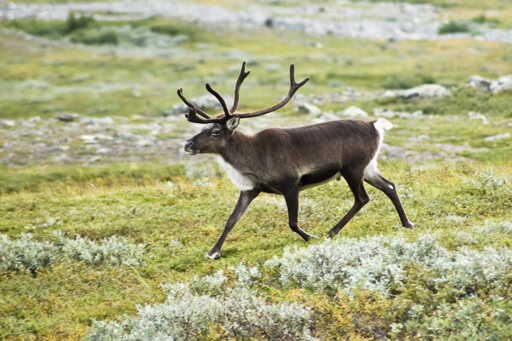Global reindeer populations could fall by more than half by 2100 due to the impacts of climate change, including the shrinking of their habitats, according to a recent study, Mongabay’s Sonam Lama Hyolmo reports. Reindeer (Rangifer tarandus), known in North America as caribou, live only in frozen tundra and boreal forests near the Arctic, and are estimated at 2.4 million individuals today. Following a 40% decline in their numbers over three generations, the IUCN, the global wildlife conservation authority, listed the species as vulnerable in 2016. The new study says the global reindeer population could drop by a further 58% by 2100 in a business-as-usual, high-emissions climate scenario, with the species’ range shrinking by an estimated 46%. In July 2025, several reindeer deaths were reported during a heat wave in Norway, Sweden and Finland that broke several temperature records. Locals also spotted reindeer in local towns, searching for water and refuge from the heat and insects. Researchers found that human-induced climate change made the heat wave at least 10 times more likely and 2° Celsius (3.6° Fahrenheit) hotter. In Finland, the Indigenous Sámi people, the only recognized Indigenous people in the European Union, told Hyolmo that the heat wave was made worse by logging of old-growth forests and NATO military expansion in the northern part of the nation. The grazing lands for their semidomesticated reindeer herds are shrinking. “When forests are logged, the tree-hanging lichen, the primary winter food of reindeer, is lost,” Osmo Seurujärvi, a Sámi herder in Inari,…This article was originally published on Mongabay
From Conservation news via this RSS feed


